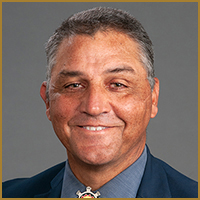
vene test meeting 2
Cancer and cancer treatments can affect patient’s memory, concentration, and other aspects of cognition. While this condition is often called ‘chemo-brain,’ cognitive dysfunction can be due to many factors in patients with cancer. Dr. Nakamura will review our latest understandings of this condition.
Target Audience
These courses are intended for medical, radiation, and surgical oncologists, hematologists, advanced practice nurses, registered nurses, physician assistants, radiologic technologists, researchers, pharmacists, trainees, allied health personnel, and others who are interested in care for patients and survivors in North Carolina.
Learning Objectives
Identify causes of cancer-related cognitive dysfunction Describe the impact of cognitive problems in cancer patients on quality of life and medical outcomes Recognize available treatments for patients with cancer experiencing cognitive dysfunction
Additional Information
| Attachment | Size |
|---|---|
| 14.09 MB |
 | Ronny Bell, PhD, MS Director, Office of Cancer Health Equity | |
 | Marc Emerson, PhD, MPH Assistant Professor |
Presenter Disclosure Information
Ronny Bell, PhD, MS, and Marc Emerson, PhD, MPH, have no relevant financial relationships with commercial interests as defined by the ACCME.
The Greensboro Area Health Education Center is approved as a provider of nursing continuing professional development by the North Carolina Nurses Association, an accredited approver by the American Nurses Credentialing Center’s Commission on Accreditation. Approved by the UNC Eshelman School of Pharmacy for ACPE. Approved by the American Society of Radiologic Technologists (ASRT).
Available Credit
- 1.00 ACPE Pharmacist
- 1.00 ACPE Pharmacy Tech
- 1.00 AMA PRA Category 1 Credit™
- 1.00 ASRT
- 1.00 ODS
- 1.00 NCPD/CNE
- 1.00 Participation

 Facebook
Facebook Twitter
Twitter LinkedIn
LinkedIn Forward
Forward